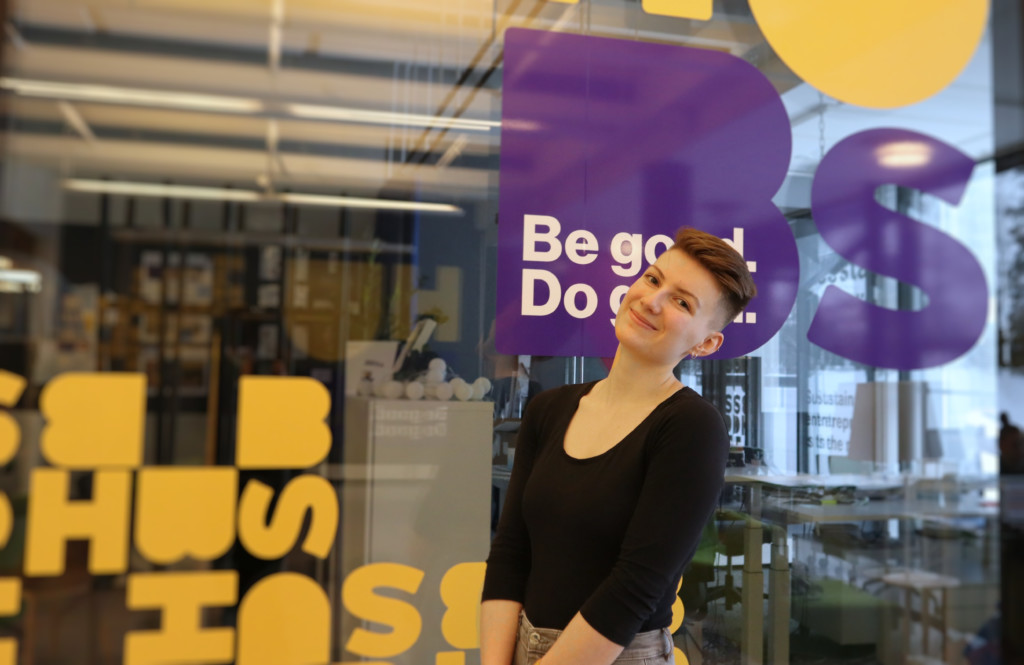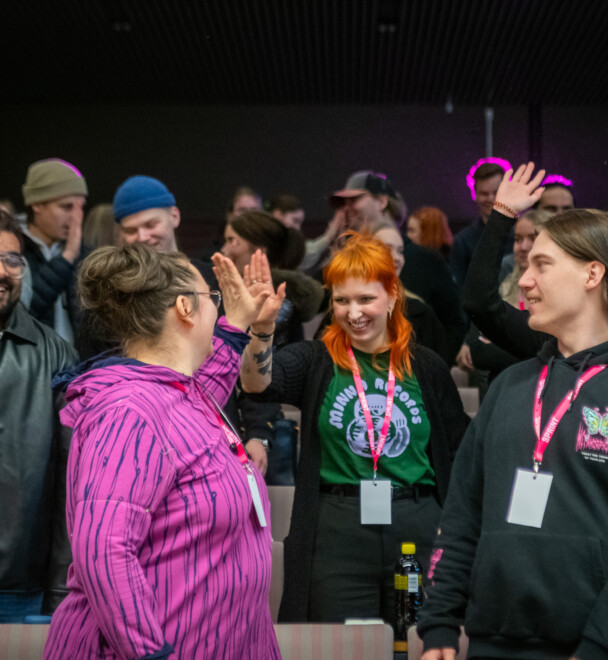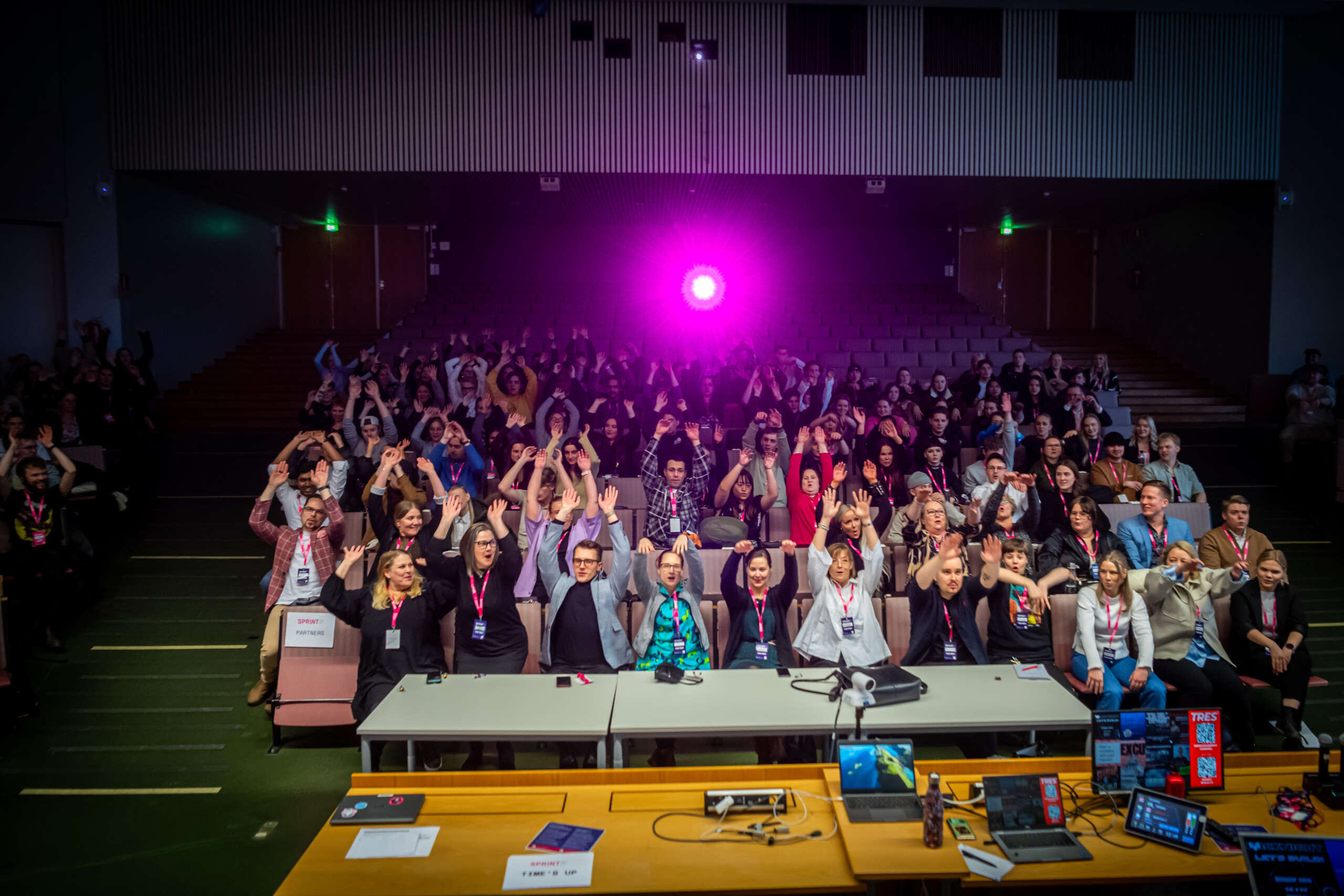
Personalities in teamwork
What have I learned about personalities influencing to teamwork?
Contact person

Pinja Tiensuu
Growth Hacker
Second year student of administration science and an optimist infatuated with the HUBS-ideology. My dream is to found and host HUBS performing club for this spring.
I am Pinja and have now worked for a couple of months on HUBS’s Growth Hacker student team. This is my first job where I have been able to develop teamwork skills in particular. During the first few months, the leaps in my own learning have been huge and now I want to share honest personal experiences of working in a team.
In my opinion, the appreciation of different personalities or personality traits and the consideration of the special features of different work natures is too low in the current work culture. I have experience in a number of workplaces where an employee is honed to fulfill the needs of the organization. However, as an employee, I have found this activity toxic and unfortunate, as the harnessing of one’s own potential in working life remains limited.
Empowering personalities is a difficult skill – we may be aware of their benefits but still unable to realize them. While working at HUBS, I have learned how one’s own ways of thinking can secretly get in the way of teamwork. In this text, I share my insight into the impact of interpersonal dynamics on teamwork and hope to be able to convey my learnings.
How do personalities manifest themselves in teamwork?
For many, personalities are probably already basic information, but I will explain them briefly. Personalities are relatively persistent individual responses to the environment, built dynamically on character traits, emotions, motives, values, and goals (Yle, 2017). There are differences in, for example, sociality, spontaneity, intuition, and decision-making criteria (Mayers-Briggs type indicator).
Personalities, or more precisely their differences, affect the dynamics of working in a team. We often make personality-related “thumb rules” about coworkers like, “Person X is trustworthy because he always takes care of everything on time,” “Person Y is prepared for change,” or “Z is hard-working but sensitive to questioning”. “Thumb rules”, or heuristics, are well-established problem-solving models or rules for different everyday situations (Peda.net). Heuristics make it easier to anticipate coworker’s actions, but on the other hand, they can be misleading. It is therefore worth taking a cautious view of the assumptions made about a co-worker. Personality differences affect interactions within the team and are manifested, for example, in the division of labor, in favor of other co-workers or even in the taboos of the workplace.
Heuristics make it easier to anticipate coworker’s actions, but on the other hand, they can be misleading
Problems in working relationships are often problems of understanding
As a team worker, I am inherently systematic, self-initiated, and social. I am often the first volunteer to new missions. I am frustrated by, among other things, the situation where I have experienced extra responsibility for a job that belongs to a teammate. My colleague’s actions started to get annoying when I felt he had come to way of my work performance.
When I noticed the frustration towards my teammate, I sat down to think of solutions to the situation. How could I encourage him to change the way he works? I realized that the problem was not really with a co-worker, but that my own interpretations and actions had partly driven the problem to develop. Instead of my co-worker being lazier than me, it was about my own way of piling up responsibility and work assignments to myself. Thinking even further, I realized my own “work drive” had distanced me from involving the team. In reality, I had no real reason to worry about the team colleague’s job because he had done his job well.
My own interpretations and actions had partly driven the problem to develop
Self-reflection brought with it an important insight into the weaknesses of my own Personality. I considered initiative and activity to be good features, but I found them to be an obstacle to teamwork at worst. I was sensitive to take the responsibility of working for myself, and I didn’t understand sharing them with others. I also had the unconscious assumption that teammates would lend a helping hand as spontaneously as I would myself. However, the other members of the group do not think identically with me. On the contrary, I may inadvertently convey an exaggerated self-righteous image of myself. After all, my teammate doesn’t even realize I need help!
The nature of the personality depends on the viewer
Thus, depending on the context, generally considered good personality features may even be toxic. Instead, for example, an antisocial person may be “against expectations” the best team player in the group. For example, our current team leader Annika describes herself as a very introvert person, but I can’t imagine anything to correct in her at her current role. I don’t think any personality or personality trait should be forced into a mold it doesn’t fit into, but strive to thrive and develop individual potentials. Annika, for example, is a wonderful and unique leadership personality who cannot be copied. Uniqueness is the strength of personalities.
Reflection, Reflection, Reflection
I learned I still have a long way to go to be a good team player. As a solution to the problem I experienced, I figured out to improve myself as a team member. In the future, I will pay attention to the involvement of others, the sharing of responsibilities and mutual trust. Because I already know the noble skill of self-initiative and activity, I could help other team members develop these skills. I’m good at doing my part on the team, but empowering other people would be a new milestone for me.
I figured out to improve myself as a team member
I encourage everyone to critical self-reflection of their own personality, regardless of whether it is about work or everyday life. In teamwork, however, I find understanding and “playing” with personalities even more important than other forms of work, as doing and understanding work takes place in an even more intense interaction between people. Teamwork sometimes requires the positive synergy of very opposite personalities, but the skill is learnable – actually even rewarding.
Here are a few tips for developing your own personality and work life skills
- DO one of the most common personality tests that will tell you and give you an analysis of your personality type – learn your strengths and weaknesses.
- THINK about what you are like in interaction situations, group situations, or working life. Relate it to your personality – become aware of your own ways of doing things.
- ASK A FRIEND! What things are you doing well and what traits are good and bad – why? You may notice some of your unconscious strengths or weaknesses.
- DEVELOP the things you feel are important. Personalities are not absolutely unchangable (Kukkonen, 2021).
Sources
- Yle (2017). Persoonallisuus ja mielenterveys. https://yle.fi/aihe/artikkeli/2013/07/10/persoonallisuus-ja-mielenterveys (Haettu 24.3.2022)
- Peda.net. Käsitteitä. https://peda.net/kotka/lukiokoulutus/kotkan-lyseon-lukio/opiskelu/oppiaineet2/psykologia/yo-kirjoitukset/hmk1/k%C3%A4sitteit%C3%A4 (Haettu (24.3.2022)
- Mayers-Biriggs-tyyppi-indikaattoriin perustuva persoonallisuustesti: https://www.16personalities.com/fi (Haettu 24.3.2022)
- Kukkonen, Milla (2021). Tiesitkö, että ihmisen persoonallisuus voi muuttua yllättäen vaikka vessanpönttöä siivotessa? Tästä kvanttimuutoksesta on kyse. https://www.is.fi/menaiset/ihmiset-ja-suhteet/art-2000007942807.html (Haettu 24.3.2022)
Stories

I was surprised by everything I could achieve – Helena’s best Sprint lessons
In this blog, Helena shares practical lessons, surprises, and insights from the Sprint Innovation Festival from the perspective of a participant!

How could a humanities student benefit from entrepreneurial skills?
Discover the perspectives of our student team on entrepreneurial skills from the viewpoint of humanities and social sciences students!

Toward a more Humane Working Life Through Entrepreneurship? Sprint Partner Kasvussa Oy’s story
Why is participating in the Sprint Innovation Festival as a working life partner important for Kasvussa Oy? Founder Noora shares her thoughts!